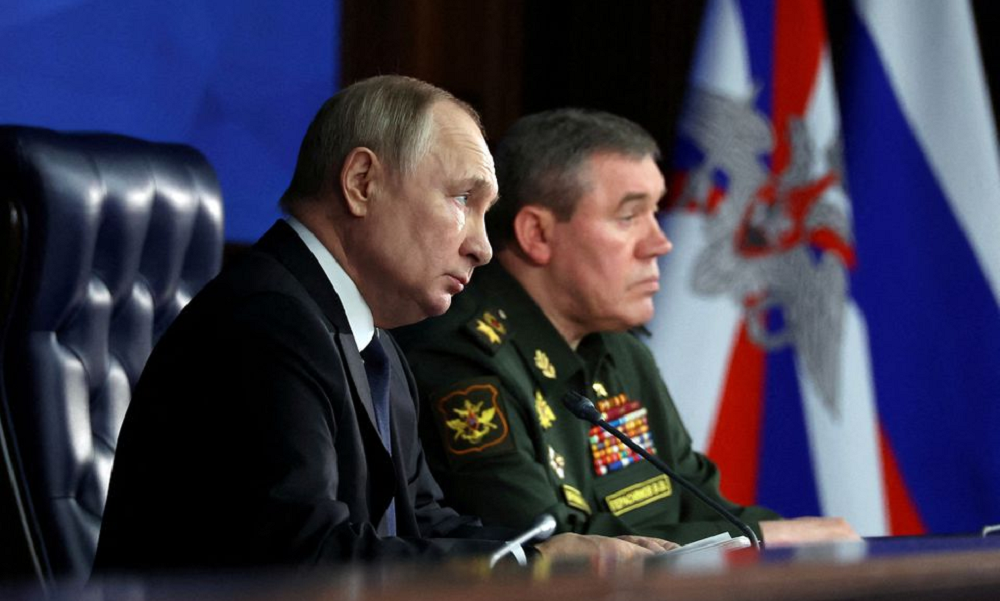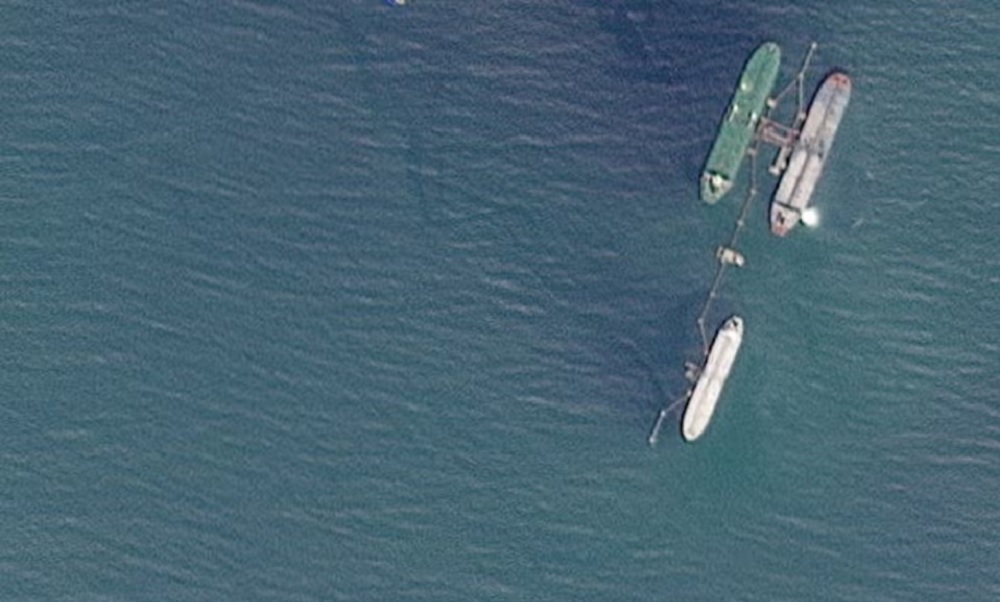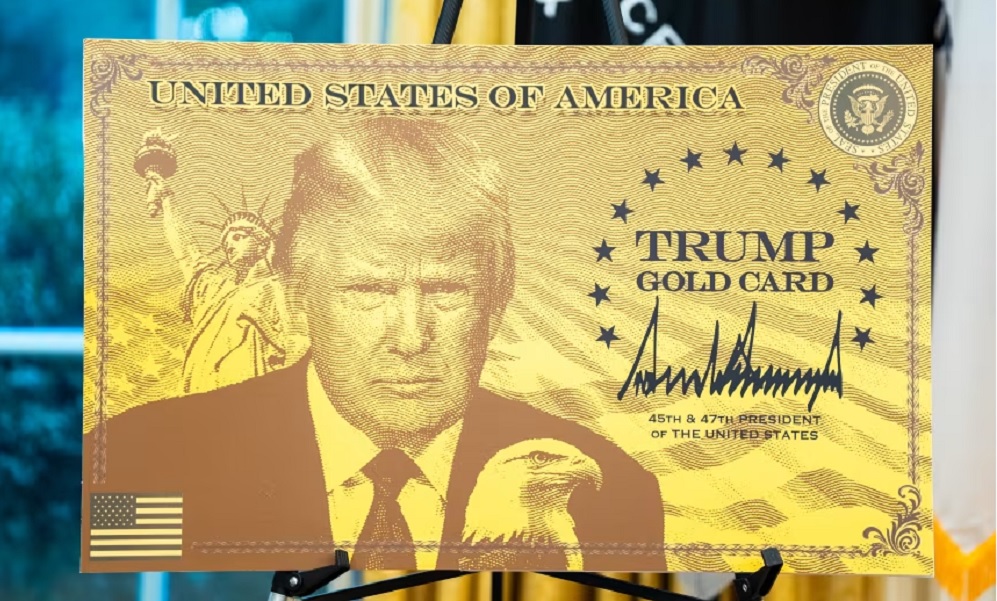World
Where are Russia’s top generals? Rumors swirl after mercenary mutiny

Russia’s most senior generals have dropped out of public view following a failed mercenary mutiny aimed at toppling the top brass, amid a drive by President Vladimir Putin to reassert his authority.
Unconfirmed reports say at least one person has been arrested, Reuters reported.
Armed forces chief of staff General Valery Gerasimov has not appeared in public or on state TV since the aborted mutiny on Saturday when mercenary leader Yevgeny Prigozhin demanded Gerasimov be handed over. Nor has he been mentioned in a defense ministry press release since June 9.
Gerasimov, 67, is the commander of Russia’s war in Ukraine, and the holder of one of Russia’s three “nuclear briefcases,” according to some Western military analysts.
Absent from view too is General Sergei Surovikin, nicknamed “General Armageddon” by the Russian press for his aggressive tactics in the Syrian conflict, who is deputy commander of Russian forces in Ukraine.
A New York Times report, based on a U.S. intelligence briefing, said on Tuesday he had advance knowledge of the mutiny and that Russian authorities were checking if he was complicit.
The Kremlin on Wednesday played down the report, saying that there would be a lot of speculation and gossip.
U.S. officials told Reuters on Wednesday that Surovikin had been in support of Prigozhin, but that Western intelligence did not know with certainty if he had helped the rebellion in any way.
The Russian-language version of the Moscow Times and one military blogger reported Surovikin’s arrest, while some other military correspondents who command large followings in Russia said he and other senior officers were being questioned by the FSB security service to verify their loyalty.
Reuters could not determine whether Surovikin had been arrested or was being screened, along with others, for their reliability in a more standard exercise.
Rybar, an influential channel on the Telegram messaging application run by a former Russian defense ministry press officer, said a purge was underway.
He said the authorities were trying to weed out military personnel deemed to have shown “a lack of decisiveness” in putting down the mutiny amid some reports that parts of the armed forces appear to have done little to stop Wagner fighters in the initial stage of the rebellion.
“The armed insurgency by the Wagner private military company has become a pretext for a massive purge in the ranks of the Russian Armed Forces,” Rybar said.
Such a move, if confirmed, could alter the way Russia wages its war in Ukraine — which it calls a “special military operation” — and cause turmoil in the ranks at a time when Moscow is trying to thwart a Ukrainian counteroffensive.
It could also cement or elevate the positions of other senior military and security figures regarded as loyal.
There was no official comment on what was going on from the defense ministry.
Some Russian and Western military and political analysts believe Defence Minister Sergei Shoigu, a veteran Putin ally who Prigozhin wanted to bring down with Gerasimov because of his alleged incompetence, may actually now be safer in his job.
“I think he (Prigozhin) actually expected something would be done about Shoigu and Gerasimov, that Putin would rule in his favor,” Michael Kofman, a Russian military specialist at the Carnegie Endowment think tank, wrote on Twitter.
“Instead, his mutiny may have ensured their continued tenure, despite being universally recognised as incompetent, and widely detested in the Russian Federation’s armed forces.”
General Viktor Zolotov, head of the National Guard and once Putin’s bodyguard, appears to be another beneficiary after appearing in public to say his men were ready to “stand to the death” to defend Moscow from Wagner.
He has spoken of the possibility of getting heavy weaponry and tanks for his forces in the wake of the mutiny.
Gerasimov was conspicuous by his absence when Putin on Tuesday thanked the army for averting a civil war, unlike Shoigu who has made several public appearances since.
Surovikin, Gerasimov’s deputy, was last seen on Saturday when he appeared in a video appealing to Prigozhin to halt his mutiny. He looked exhausted and it was unclear if he was speaking under duress.
Dara Massicot, an expert in the Russian military at the RAND Corporation think tank, said that something looked odd about the video, in which Surovikin has an automatic weapon on his lap.
“I noted a few days ago, there was something very off here. He’s not wearing his insignia or rank tabs. 30+ years in the military and he’s not got them on, even at night? Nope,” she wrote on Twitter.
There were unconfirmed Russian media and blogger reports on Wednesday evening that Surovikin was being held in Moscow’s Lefortovo detention facility after being arrested.
Alexei Venediktov, a well-connected journalist, said – without citing his sources – that Surovikin had not been in touch with his family since Saturday and that his bodyguards had gone silent too.
Lawrence Freedman, Emeritus Professor of War Studies at King’s College London, said Surovikin’s removal, if true, could be more destabilizing to Russia’s war effort than Saturday’s mutiny “especially if other associates of Prigozhin/Surovikin start to get purged.”
“Surovikin (is) a brute but also one of the more capable Russian commanders,” Freedman said on Twitter.
World
Venezuela-US tensions spike in wake of seized tanker as Nobel winner vows change

Venezuelan opposition leader Maria Corina Machado on Friday promised political change after slipping out of the country in secret to collect the Nobel Peace Prize, as the shock waves intensified from the Trump administration’s seizure of an oil tanker earlier this week.
That escalation came on the heels of a large-scale U.S. military buildup in the southern Caribbean as President Donald Trump campaigns to oust Venezuelan leader Nicolas Maduro, pushing relations to their most volatile point in years, Reuters reported.
The effects could ripple through the region, with Venezuelan oil exports falling sharply and crisis-stricken Cuba, already straining to power its grid, at risk of losing supply.
The U.S. seizure of the Skipper tanker off Venezuela’s coast on Wednesday marked the first U.S. capture of Venezuelan oil cargo since sanctions were imposed in 2019.
The vessel is now heading to Houston, where it will offload its cargo onto smaller ships, Reuters reported.
The Trump administration does not recognize Maduro, in power since 2013, as Venezuela’s legitimate leader.
Washington has signalled more seizures are planned as part of efforts to choke off sanctioned oil flows, and subsequently imposed new sanctions on three nephews of Maduro’s wife and six tankers linked to them.
The U.S. military presence in the Caribbean has grown as Trump in recent weeks has discussed potential military intervention in Venezuela, based on accusations that the country ships narcotics to the United States. The Venezuelan government has denied the accusations.
So far there have been over 20 U.S. military strikes in the Caribbean and Pacific against suspected drug vessels this year, in which nearly 90 people have been killed, alarming human rights advocates and stirring debate among U.S. lawmakers.
While many Republicans have backed the campaign, Democrats have questioned whether the campaign is illegal and urged more transparency, including the release of a full, unedited video, opens new tab of strikes on a suspected drug-trafficking boat.
MACHADO DEFIES BAN, URGES TRANSITION
Machado defied a decade-long travel ban and a period in hiding to travel to Oslo on Thursday, noting that she would soon bring the Nobel Peace Prize back home to Venezuela.
She said Maduro would leave power “whether there is a negotiated changeover or not,” vowed she is focused on a peaceful transition, and thanked Trump for his “decisive support.”
Machado is aligned with U.S. hardliners who accuse Maduro of ties to criminal networks – claims that U.S. intelligence has reportedly questioned.
When asked at a press conference in Oslo if she believed U.S. intervention was needed in Venezuela, Machado replied, “We are asking the world to help us.”
Venezuela condemned the tanker seizure as “blatant theft” and “international piracy,” saying it would file complaints with international bodies.
At the same time, Venezuelan lawmakers took a step to withdraw the country from the International Criminal Court, which is currently investigating alleged human rights abuses in the South American country.
Adding to the friction, the Venezuelan government announced the suspension of a U.S. migrant repatriation flight on Friday. A U.S. official countered that deportation flights would continue.
World
Putin arrives in Ashgabat to hold series of meetings

Russian President Vladimir Putin has arrived in Turkmenistan’s capital for a two-day visit.
According to TASS, the presidential aircraft of the Rossiya Special Flight Detachment landed near the presidential terminal of Ashgabat International Airport, commonly referred to as the “small bird” for its distinctive design.
During his visit, Putin will attend an international forum titled “Peace and Trust: Unity of Goals for a Sustainable Future” and hold several bilateral meetings.
The Kremlin has confirmed talks with Turkish President Recep Tayyip Erdogan, while the Iranian Embassy has announced that a meeting with President Masoud Pezeshkian is also planned.
The Ashgabat forum will also be attended by Turkmen President Serdar Berdymukhamedov, along with the presidents of Armenia, Iraq, Kazakhstan, Kyrgyzstan, Uzbekistan and Tajikistan, as well as the prime ministers of Azerbaijan, Hungary, Georgia and Pakistan.
World
Trump launches gold card program for expedited visas with a $1 million price tag

President Donald Trump’s administration officially launched his “Trump Gold Card” visa program on Wednesday to provide a pathway, with a steep price, for non-U.S. citizens to get expedited permission to live in the United States.
The website Trumpcard.gov, complete with an “apply now” button, allows interested applicants to pay a $15,000 fee to the Department of Homeland Security for speedy processing, Reuters reported.
After going through a background check or vetting process, applicants must then make a “contribution” — the website also calls it a “gift” — of $1 million to get the visa, similar to a “Green Card,” which allows them to live and work in the United States.
“Basically it’s a Green Card, but much better. Much more powerful, a much stronger path,” Trump told reporters at the White House. “A path is a big deal. Have to be great people.”
Commerce Secretary Howard Lutnick said some 10,000 people have already signed up for the gold card during a pre-registration period and he expected many more to do so. “I would expect over time that we’d sell, you know, thousands of these cards and raise, you know, billions, billions of dollars,” Lutnick told Reuters in a brief interview.
Lutnick said the gold card program would bring people into the United States who would benefit the economy. He compared that to “average” Green Card holders, whom he said earned less money than average Americans and were more likely to be on or have family members on public assistance. He did not provide evidence for that assertion.
Trump’s administration has pursued a broad crackdown on immigration, deporting hundreds of thousands of people who were in the country illegally and also taking measures to discourage legal immigration.
The gold card program is the Trump version of a counter balance to that, designed to make money for the U.S. Treasury in the same way the president, a former New York businessman and reality television host, has said his tariff program has successfully done.
Lutnick noted that there was also a corporate version of the gold card that allowed companies to get expedited visas for employees they wanted to work in the United States, for a $2 million contribution per employee.
-

 Sport4 days ago
Sport4 days agoILT20: Desert Vipers edge Gulf Giants in historic super over thriller
-

 Latest News2 days ago
Latest News2 days agoMuttaqi: Afghanistan’s progress requires both religious and modern education
-

 Regional4 days ago
Regional4 days agoSix Pakistani soldiers killed in TTP attack in Kurram District
-

 Business4 days ago
Business4 days agoTrade bodies warn almost 11,000 Afghan transit containers stuck at Karachi port
-

 World4 days ago
World4 days agoPowerful 7.6 earthquake hits northern Japan, tsunami warnings issued
-

 Latest News3 days ago
Latest News3 days agoTrump calls Afghanistan a ‘hellhole’ country as US expands immigration restrictions
-

 Sport5 days ago
Sport5 days agoSorkh Poshan Khafi defeats Sarsabz Yashlar 4-0 in Afghanistan Champions League
-

 Sport3 days ago
Sport3 days agoCommanding wins for Arman FC and Sarsabz Yashlar in Afghanistan Champions League
























